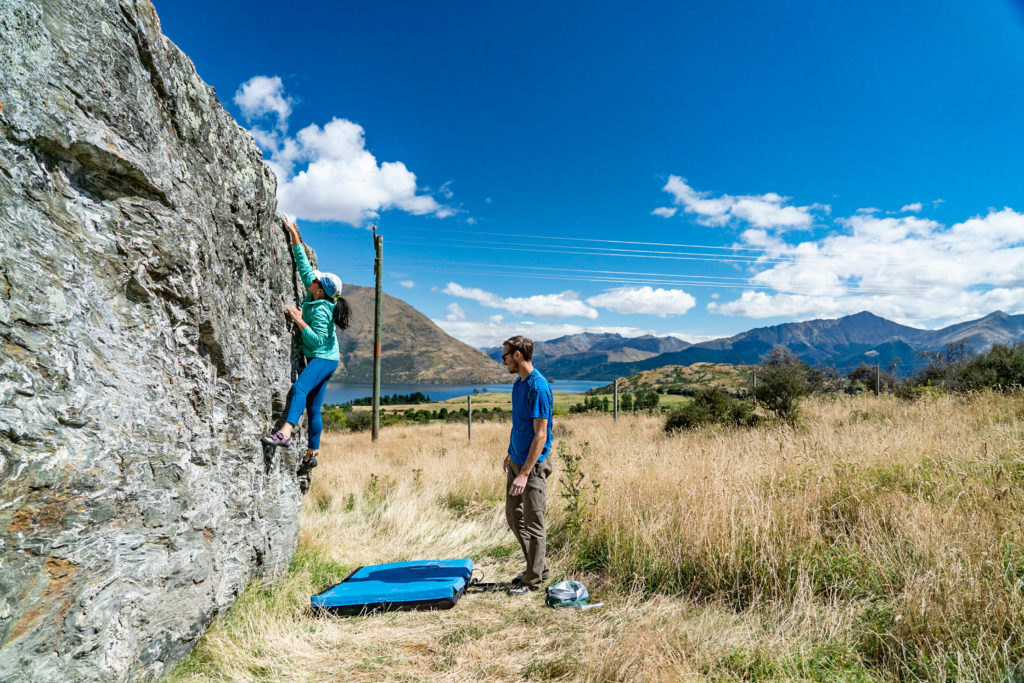
You’d be remiss to not stop in Queenstown when in New Zealand. It’s the adventure capital of the country with hiking, canyoneering, backpacking and climbing in close proximity. Queenstown climbing is near synonymous with climbing at Wye Creek, or perhaps the crags of its neighbor to the north in Wanaka. Even with the abundance of bolts to clip, Queenstown is home to some damn fine schist bouldering, with stunning views of the Remarkables to boot. Here’s your guide to everything about Jardines bouldering.
Jardines bouldering access
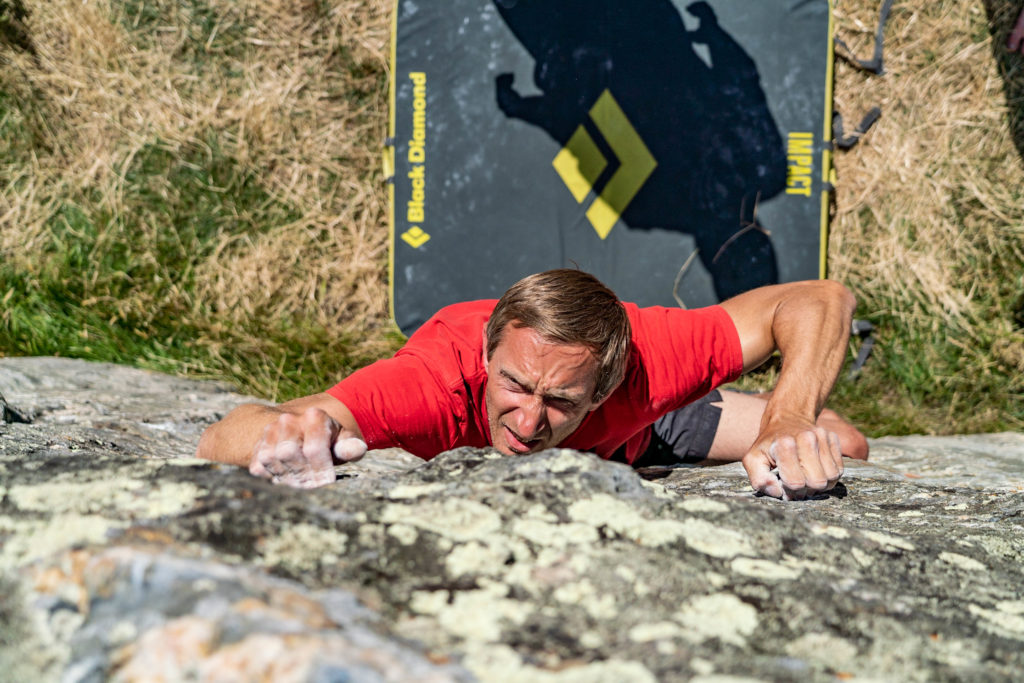
First and foremost, the Jardines are on private land. Local climbing advocacy organization, Queenstown Climbing Club, worked with the Jardines family to ensure climbing access. Access to these boulders is a privilege and can be revoked at anytime. Pick up your garbage and anything else you see lying around. Make the short drive to town to poop. Don’t play loud music. Brush your ticks.
Make sure you close the gates behind you when you go. This is a working farm.
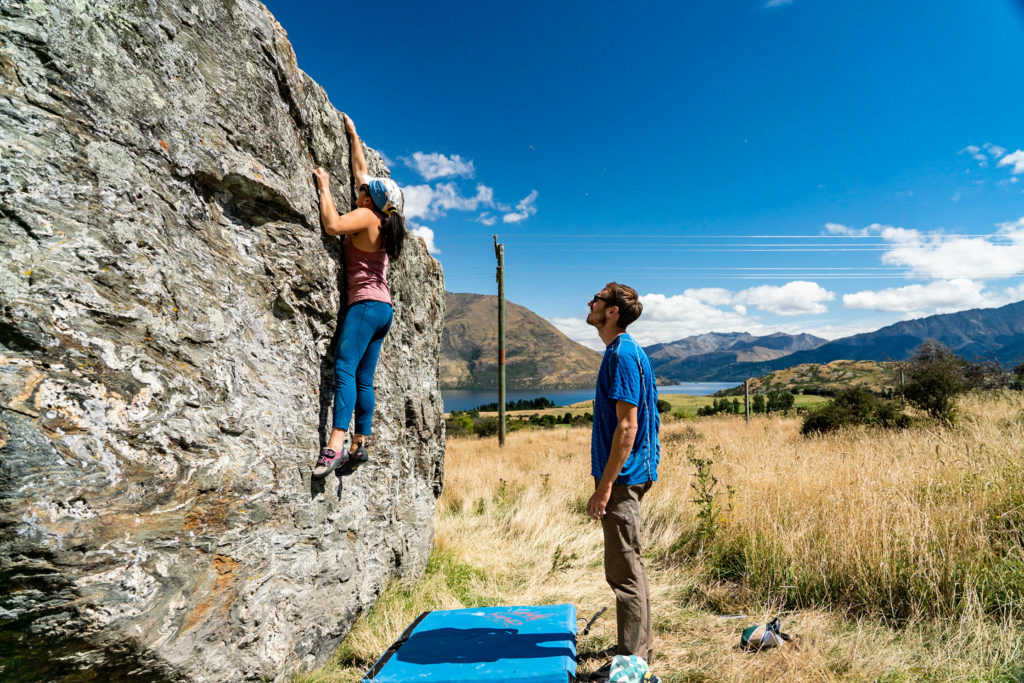
How to get to the Jardines
The Jardines are easily accessible from Queenstown. From Queenstown, drive east to Frankton. Drive south across the Kawarau River on Highway 6 for about 8.5 km. Look for a farm gate on your east. You should be able to see the boulders from the road. The book mentions a NZONE skydiving sign, but in February 2019, that sign was not there.
There’s cell service throughout the boulder field, so you could potentially call an Uber to take you to and from the rocks.
When to boulder at the Jardines
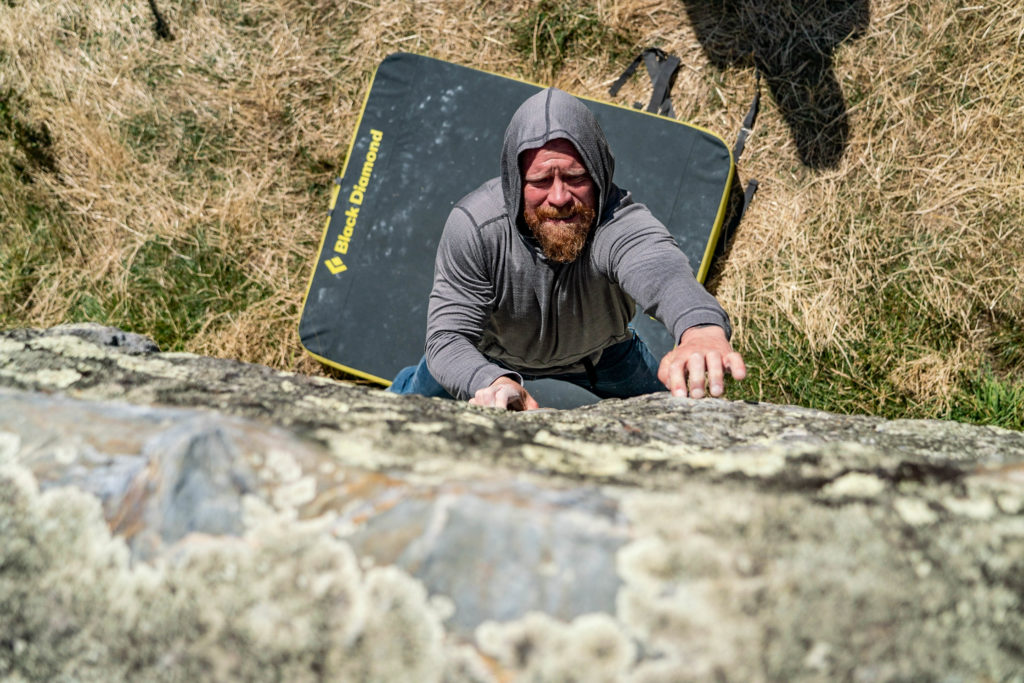
Summer bouldering in Queenstown can be hot, hot, hot. The sun beats down on you. There’s not much shade here. The rocks are still climbable, but expect them to be greasy with little friction. If you’re looking for perfect conditions to try hard, don’t go in the summer. Try fall, spring or winter instead.
Where to get Jardines bouldering gear
As of February 2019, Small Planet Outdoors in Queenstown has one crash pad for rent for $20 NZD. Call ahead of time to see if it is available. (It’s a Mad Rock Mad Pad.) If you anticipated doing a bunch of bouldering on your trip and bought or brought your own, yay!
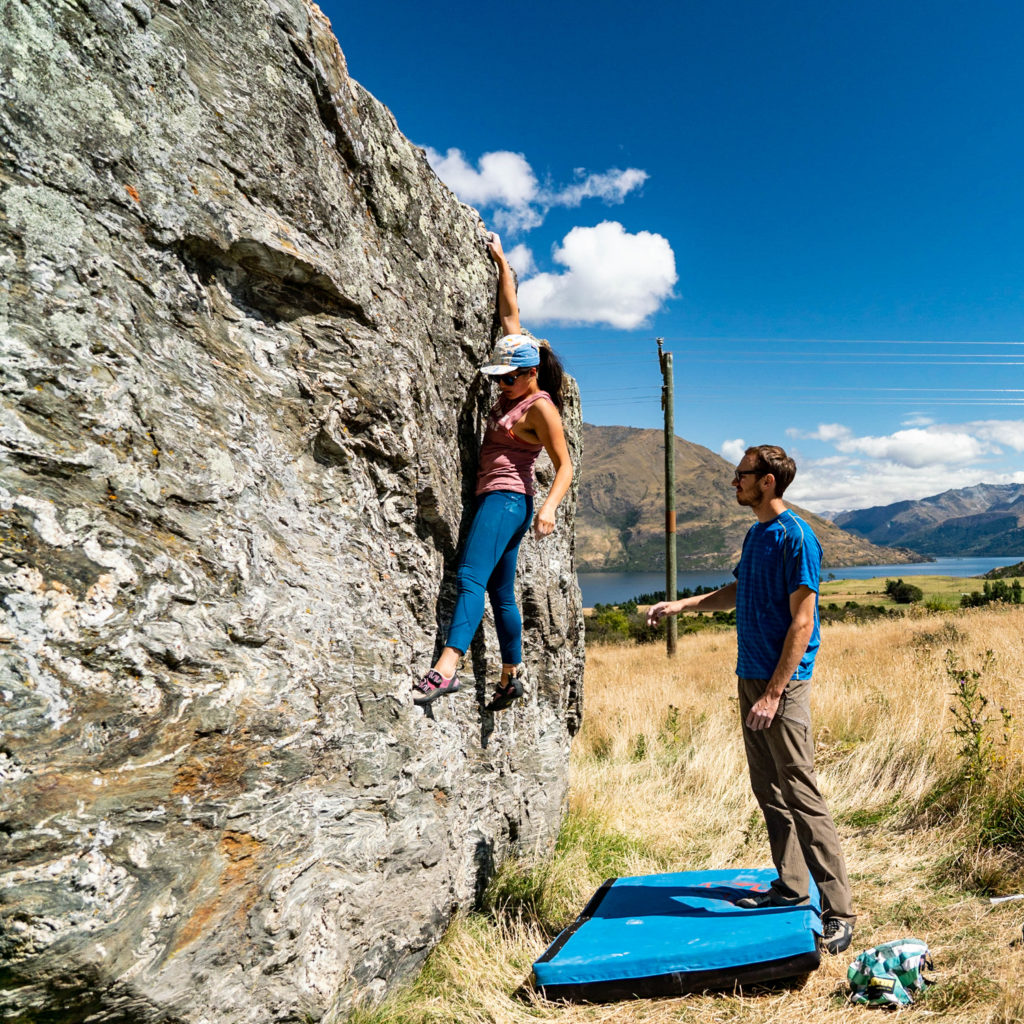
The best guidebook for the area is Queenstown Rock, Ice and Boulders, also available at Small Planet for $40 NZD. I actually bought this guide as a souvenir. It’s a very good guide with actual route descriptions and good photos, much better than the Castle Hill guidebook. Plus there’s a ton of stuff in there if you want to go clip some bolts too.
As for things to pack, bring lots of water. There’s none of it here. Don’t forget sunscreen. And of course, the usual bouldering essentials.
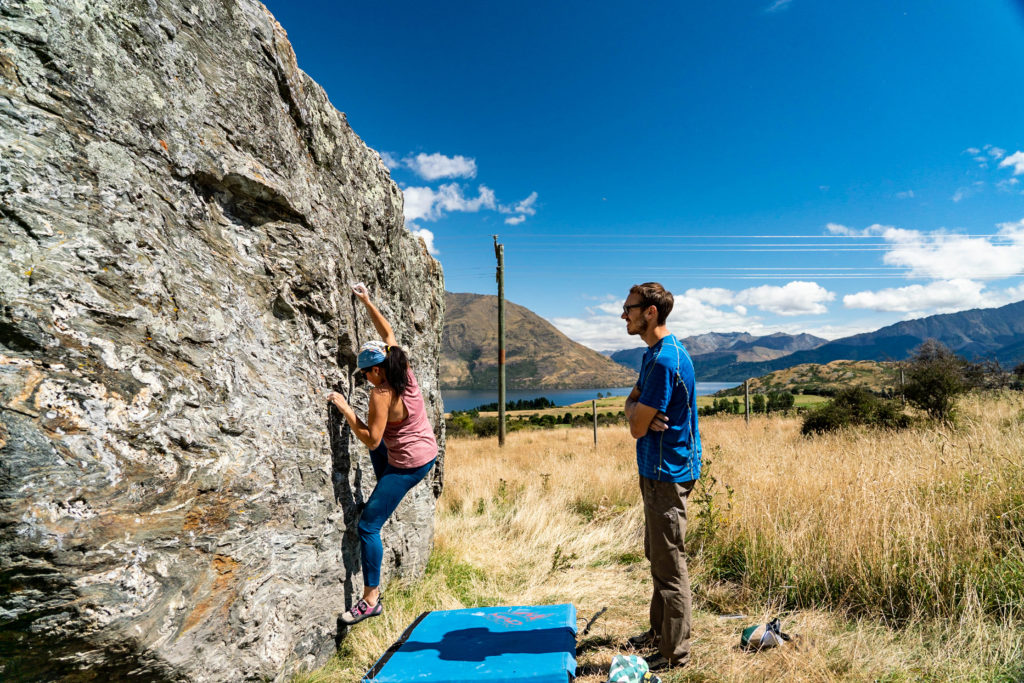
Where to climb at the Jardines
I had about two days in the Jardines. Everyone in our group had wildly varying climbing abilities.
Our first day, we climbed at the Virus and Tussock boulders. There were a good number of moderates here.
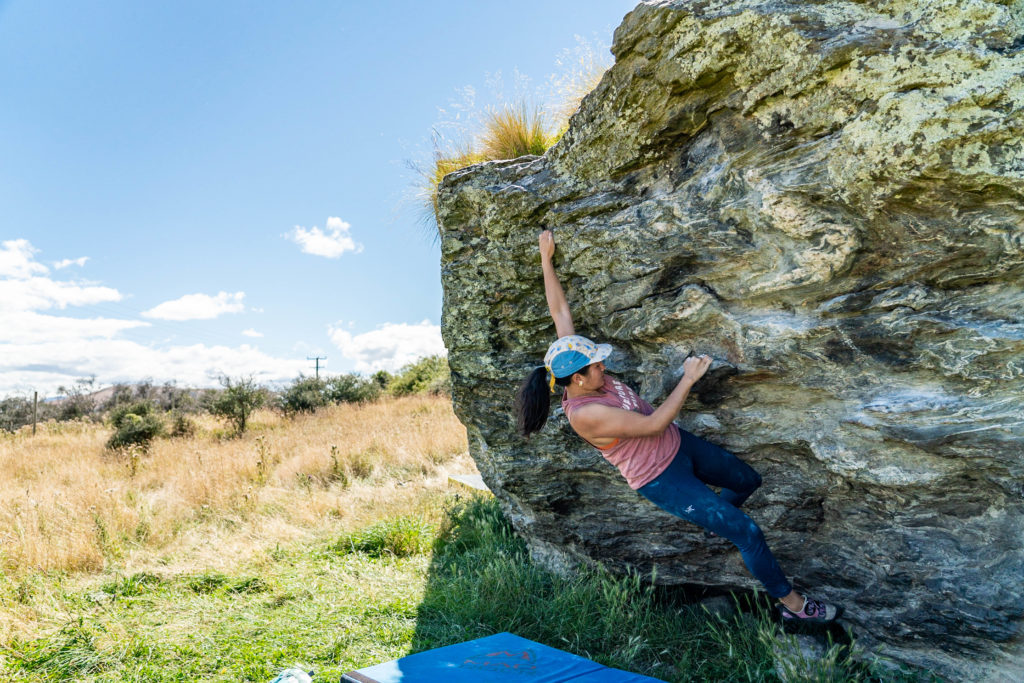
On our second day, we climbed at the Magic Eye boulder and did literally every single problem on this boulder. Magic Eye is awesome for getting used to the style of Queenstown bouldering, so I recommend going here first. It’s home to problems V4 and under, so it’s perfect for beginners and perfect for warming up.
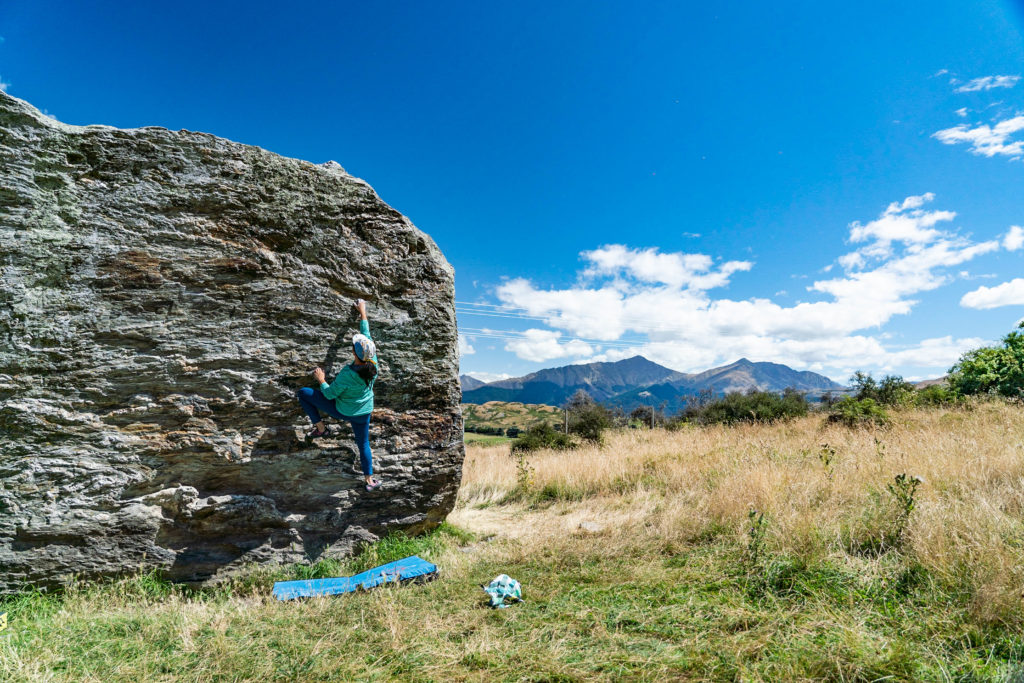
Bouldering at the Jardines was my favorite in New Zealand. I rope climbed at Hospital Flat in Wanaka, Wye Creek in Queenstown, and in the Port Hills near Christchurch. I bouldered at Castle Hill. Maybe I’m just a peak boulderer now, but the Jardines suited me very well with its crimpy, technical and scrunchy lines. I’d come back just to project things here. It was magical.
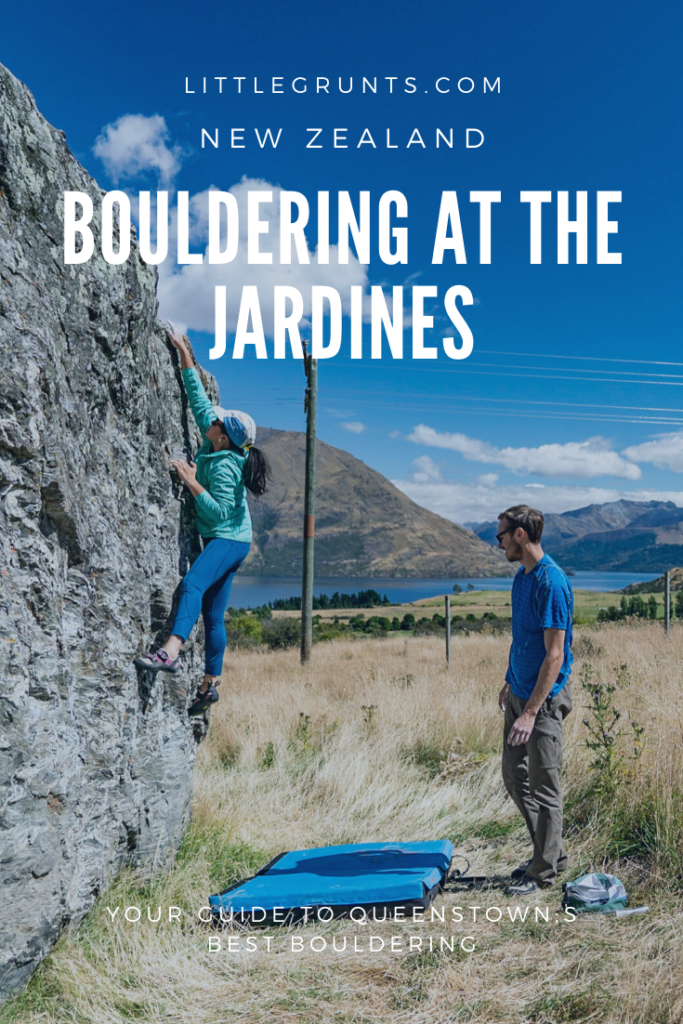
Last updated on November 27, 2019.

1 comment
Been there end of January 2025.
When we were there a orange high visibility jacket marked the gate. On the backside of the gate are two sighs describing the area and rules.
The first half of the way (up until the next gate) to the parking area is a good grassy off-road track. Afterwards it gets rougher and you need a 4×4 to the designated parking area. We only had our camper van and parked right after the second gate and waked the rest of the way.
To access the different boulders you need to walk through bushes, I recommend long trousers.
The outdoor equipment store “small planet” has four boulder mats to rent for 20 NZD/day. First comes first serve
We didn’t bought the topo/guide book from the area bacause we only had one day there. But even without it was good fun trying to get up the boulders.